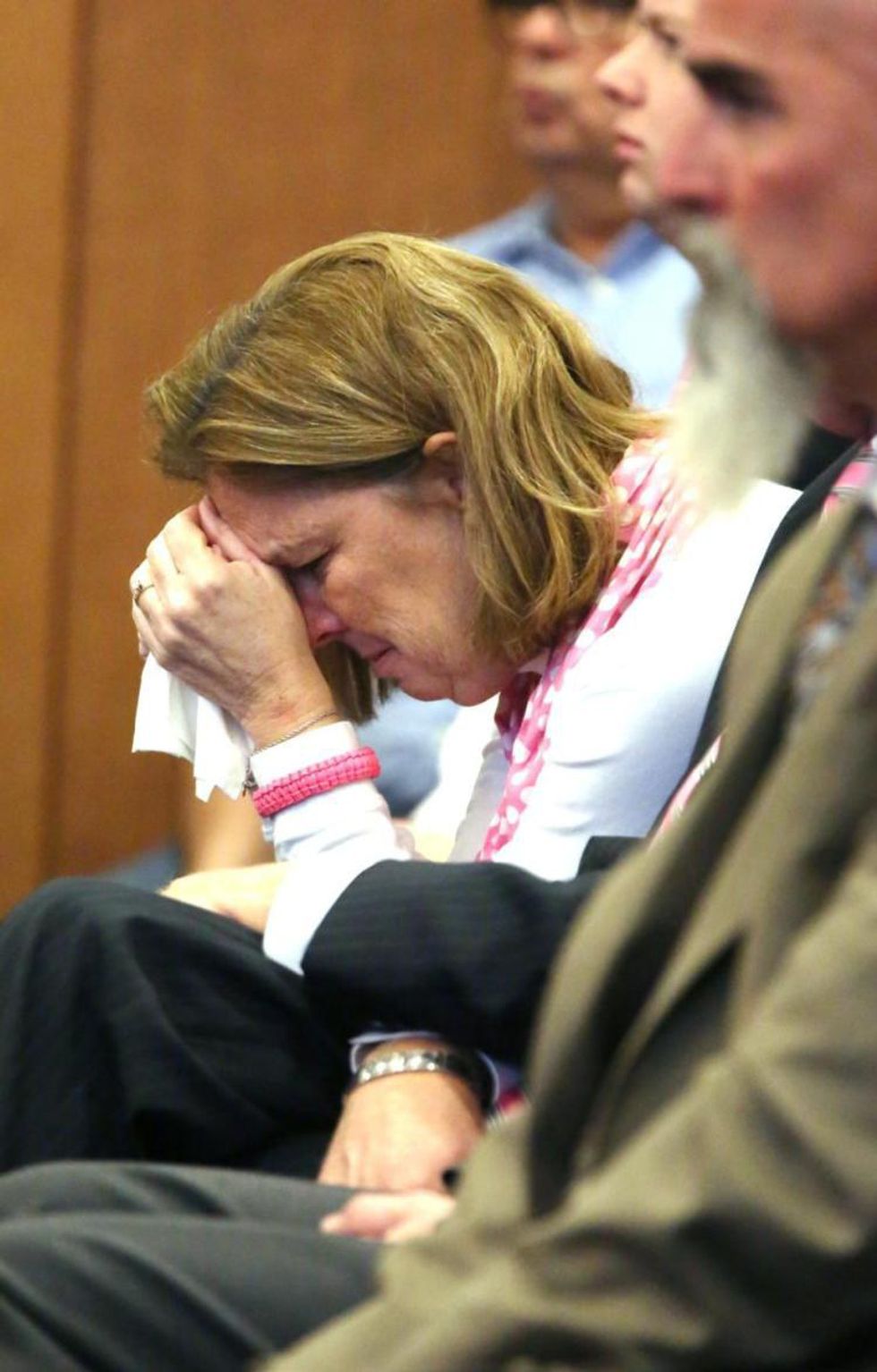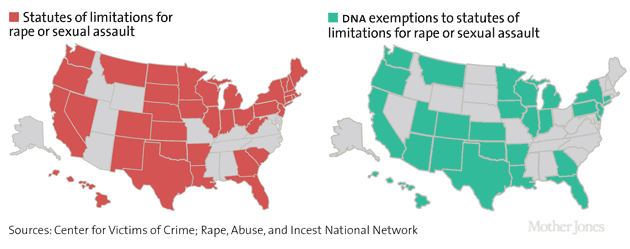**The following article deals with the Statute of Limitations for rape and could be triggering.***
The statute of limitations for rape are changing around the United States. For states such as California, the statute of limitations for rape ia being abolished altogether.
In a general sense, statute of limitations (SOL) are “laws passed by legislative bodies in common law systems to set the maximum time after an event within which legal proceedings may be initiated”. In other words, these laws make it so perpetrators cannot be prosecuted for a crime a specific amount of years after it has been committed despite the evidence that may turn up. This is heartbreaking news for victims who have finally mustered up the courage to come forward.
Heinous crimes, such as first-degree murder, do not have a SOL. Until recently, rape was not one of these legally called heinous crimes in all states. The statute of limitations for rape (in states which have a statute for this crime) is different for many states:
Most commonly, the SOL is usually 10 years. Some states have SOL as long as 20 years (Ohio) and others as short as 5 years (Connecticut). In addition, many states put regulations on the statues. For example, if the rape is not reported within a year in Washington, the statute falls from 10 years to three. In Oregon, the state I now live in, the SOL is only six years.
There are sixteen states that do not have SOL for rape, and California is jumping on that bandwagon. And believe it or not, the motivation for the change in law was Bill Cosby’s sexual assault scandal that surfaced last year.
If you recall, towards the end of last year, Bill Cosby was formally arraigned on one charge of aggravated indecent assault. Since the first charge, over 50 women have come forward and accused him on drugging and/or sexually assaulting them. Of these 50 women, the first alleged incident occurred in 1965. That is over 50 years ago and the victim was a 22-year-old secretary at a talent agency.
For context, 50 years ago Bill Crosby was a regular guest on The Tonight Show, was starting his career with The Bill Crosby Show, later became involved with Fat Albert and the Cosby Kids. During the 1070s, Cosby and other African-American actors joined forces to create successful comedies to counter the violent “Blaxploitation” films that were popular for the era. In the 1980s, Cosby greatest television success came with the Cosby Show. In other words, Cosby was relatively famous and was becoming more and more successful as years went on.
For those whom he assaulted, this fame and glory must have been intimidating. Who would believe the 22-year-old secretary over the wealthy and successful, flourishing actor/comedian? Subsequently, many of his victims did not report the crimes.
For one case in suburban Philadelphia, protesters couldn’t charge Cosby because the assault had taken place too long ago. Despite the evidence, this victim could not get closure.
Building up the strength to report a sexual assault is excruciating and painful in the first place. However, adding fame of your assailant into the formula makes the process even more difficult for some. Cosby was gaining fame left and right during the time of most of the attacks. His fame didn’t subside until many, many years later when the comedian/actor reached his early 70s. For some of his victims, this meant that they would never get closure and Cosby would never get punishment.
In my opinion this is entirely unfair. While rape victims are faced with lifelong hurdles and life changing memories, their assailants can walk free after a measly 10 years, and in some states, as little as three.
Therefore, I am thankful that my home state sees the injustice in this system and has decided to pass the Justice for Victims Act. Thank you Governor Jerry Brown! You have made a difference for women and men everywhere.
No longer will victims face an additional pressure to come forward. The healing process takes time and that is exactly what you have given them.
“This law will only affect a small number of survivors who have solid evidence that a crime occurred many years after the fact, but for these survivors, this law is life-changing.” ~ Caroline Heldman, an Occidental College professor who co-chaired the EndRapeSOL campaign


























